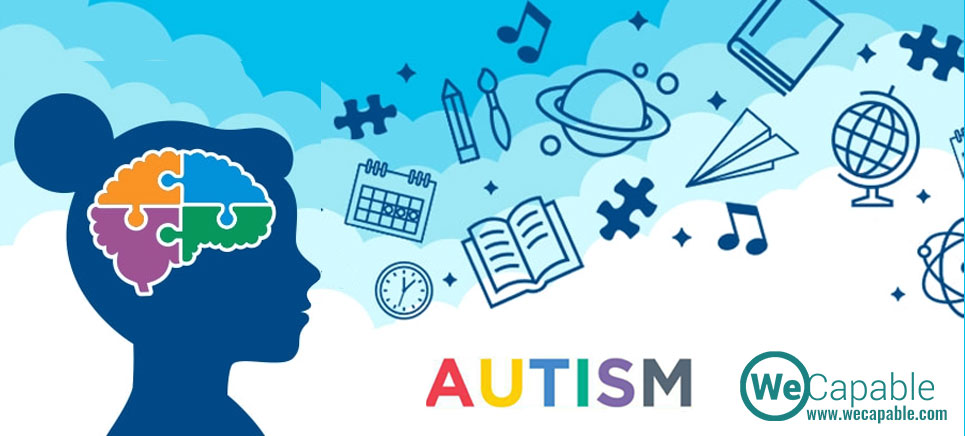There are lots of myths built around disabilities including physical disabilities, mental disorders and neurological conditions. Autism Spectrum Disorder is no exception. Here we are trying to dispel all the common myths about Autism Spectrum Disorder. It is necessary to understand the difference between facts and myths because these myths ultimately shape the societal attitude towards a person with Autism.
Common Myths about Autism
Myth 1: All people with Autism are alike.
Fact: Autism Spectrum Disorder is a spectrum or group of development disorders that affect social, communication and behavioral abilities. They affect each person in a different way.
Myth 2: Autism in a child is caused due to poor parenting and an unloving environment.
Fact: Though the exact reason for Autism is not known, but certainly it has nothing to do with how a child is raised. Autism is a neurological condition.
Myth 3: Autism can be cured.
Fact: An early intervention can significantly help in a child’s development process but no cure for Autism has been found yet.
Myth 4: People with Autism should be employed in a job that requires a repetitive task.
Fact: As people with ASD are different from each other, no particular job can be said to be best suited for all.
Myth 5: People with ASD cannot form relationships.
Fact: Though social interaction is impaired in ASD, people with Autism do form fulfilling relationships with parents, spouse, children and friends.
Myth 6: Vaccines cause Autism.
Fact: No such evidence has been found that can support the link between vaccines and Autism.

Myth 7: People with Autism can’t feel the emotions like happiness or sadness.
Fact: Autism does not make a person emotionless. The only difference is that they communicate their emotion differently.
Myth 8: People with Autism are intellectually disabled.
Fact: Autism, often, brings exceptional abilities along with unique challenges. Many people with autism have a normal to a high level of IQ and several of them are exceptionally good at math, music, painting or any such pursuit.
Myth 9: Autistic people always need help. They cannot live independently.
Fact: Given proper education and training many individuals can grow to become independent and confident people.
Myth 10: All individuals with autism have some special skill or god-gifted talent.
Fact: A small percentage of autistic persons do have some special talent but most of them do not possess such ‘savant’ skills.
Myth 11: People with Autism do not make eye contact.
Fact: An autistic person does not generally feel comfortable in a social setting. But, if the person feels comfortable with the other person they make spontaneous eye contact and talk confidently.

Myth 12: Autistic people can become violent sometimes and so they are dangerous.
Fact: Autistic people are too averse to harm someone. They are normally not violent. When they exhibit aggression due to frustration or any other issue, the aggression is directed to themselves rather than to others.
Myth 13: Autistic people are mostly non-verbal. They do not have language skills.
Fact: A significant percentage of autistic people are non-verbal or have limited verbal skills. But, there are many who have sophisticated or intelligent verbal skills.
Myth 14: Autism is a mental health disorder.
Fact: No, autism is a neurological health disorder.
Myth 15: People with autism lack empathetic feelings. They are cold.
Fact: Autistic people are as empathetic as anyone else without autism. They are normally not very good at picking non-verbal cues but if they are told more directly they understand and empathize with others.
Myth 16: Special diets and medicine can cure Autism.
Fact: Autism is not a disease but a disorder that stays life-long. The challenges brought by autism are ‘managed’ with therapies and special training.
Myth 17: Children with autism cannot learn.
Fact: Autistic children need to be taught and trained in their special way. Many autistic individuals are well-educated and successful in their life.
Use the citation below to add this article to your bibliography
"Autism Spectrum Disorder: Dispelling the Common Myths." Wecapable.com. Web. April 25, 2024. <https://wecapable.com/autism-spectrum-disorder-common-myths/>
Wecapable.com, "Autism Spectrum Disorder: Dispelling the Common Myths." Accessed April 25, 2024. https://wecapable.com/autism-spectrum-disorder-common-myths/
"Autism Spectrum Disorder: Dispelling the Common Myths." (n.d.). Wecapable.com. Retrieved April 25, 2024 from https://wecapable.com/autism-spectrum-disorder-common-myths/

Leave a Reply